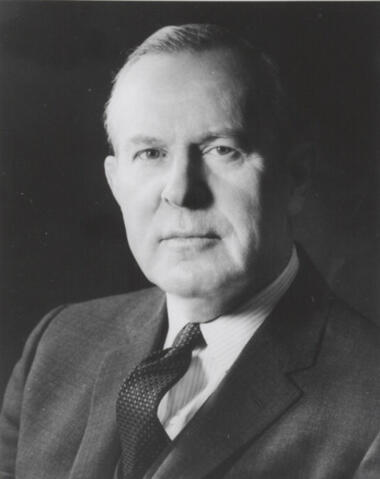
Zone du titre et de la mention de responsabilité
Titre propre
Lester B. Pearson - Portrait
Dénomination générale des documents
- Document graphique
Titre parallèle
Compléments du titre
Mentions de responsabilité du titre
Notes du titre
Niveau de description
Pièce
Cote
Zone de l'édition
Mention d'édition
Mentions de responsabilité relatives à l'édition
Zone des précisions relatives à la catégorie de documents
Mention d'échelle (cartographique)
Mention de projection (cartographique)
Mention des coordonnées (cartographiques)
Mention d'échelle (architecturale)
Juridiction responsable et dénomination (philatélique)
Zone des dates de production
Date(s)
-
1965 (Production)
Zone de description matérielle
Description matérielle
1 photograph : b&w ; 10 x 8.5 cm
1 negative : b&w ; 12.5 x 10 cm
Zone de la collection
Titre propre de la collection
Titres parallèles de la collection
Compléments du titre de la collection
Mention de responsabilité relative à la collection
Numérotation à l'intérieur de la collection
Note sur la collection
Zone de la description archivistique
Nom du producteur
Historique de la conservation
Portée et contenu
Head and shoulders image of Lester B. Pearson, Prime Minister of Canada, at the time of presentation of an honorary Doctor of Laws Degree by the University of Saskatchewan, Regina Campus, during their first convocation in May 1965.
Bio/Historical Note: Lester Bowles (Mike) Pearson was a Canadian scholar, statesman, soldier, prime minister and diplomat who won the Nobel Peace Prize in 1957 for organizing the United Nations Emergency Force to resolve the Suez Canal Crisis. Pearson was born in 1897 in Newtonbrook in the township of York, Ontario. He was the 14th prime minister of Canada from 1963 to 1968, as the head of two back-to-back Liberal minority governments following elections in 1963 and 1965. During Pearson's time as prime minister, his Liberal minority governments introduced universal health care, the Canada Student Loan Program, the Canada Pension Plan, the Order of Canada, and the Maple Leaf flag. His Liberal government also unified Canada's armed forces. Pearson convened the Royal Commission on Bilingualism and Biculturalism, and he kept Canada out of the Vietnam War. In 1967 his government passed Bill C-168, which de facto abolished capital punishment in Canada by restricting it to a few capital offences for which it was never used, and which themselves were abolished in 1976. With these accomplishments, together with his groundbreaking work at the United Nations and in international diplomacy, which included his role in ending the Suez Crisis, Pearson is generally considered among the most influential Canadians of the 20th century and is ranked among the greatest Canadian prime ministers. Pearson died in Ottawa in 1972.
Zone des notes
État de conservation
Source immédiate d'acquisition
Classement
Langue des documents
Écriture des documents
Localisation des originaux
Disponibilité d'autres formats
Restrictions d'accès
There are no restrictions on access.
Délais d'utilisation, de reproduction et de publication
Photographer: Ashley & Crippen Photographers, Toronto
Copyright holder: Unknown
Other terms: Responsibility regarding questions of copyright that may arise in the use of any images is assumed by the researcher.
Instruments de recherche
Éléments associés
Accruals
Location note
Vol. 82 / Vol. Neg. 13

